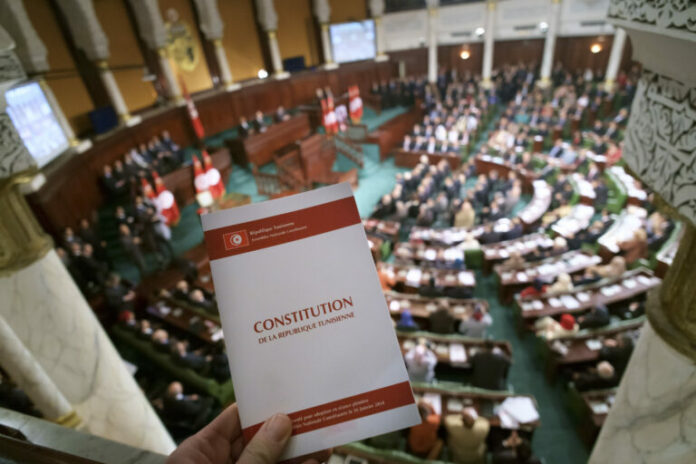Yesterday, Saturday, September 11, 2021, the President of the Republic, Kais Saied, toured Habib Bourguiba Street in Tunis, where he met a number of citizens and listened to their concerns.
He hinted at the possibility of amending the country’s constitution. Saied affirmed his “respect for the constitution and the procedures, with the possibility of introducing amendments to the constitutional text in order to respond to the aspirations of the sovereign people and ensure that they exercise their rights, express their will and live in dignity in a free homeland.”
So what are the legislative mechanisms for amendment?
Constitutional impediments?
Article 143 states that “the President of the Republic or one-third of the members of the Assembly of the People’s Representatives has the right to initiate a proposal to amend the Constitution, and the initiative of the President of the Republic has priority over consideration.”
As for article 144, it states: “Every initiative to amend the constitution is presented by the Speaker of the Assembly of the People’s Representatives to the Constitutional Court for an opinion on the fact that it is not related to what may not be amended as stipulated in this constitution.
It should be mentioned that, the Assembly of the People’s Representatives considers the amendment initiative to approve by an absolute majority the principle of the amendment. The constitution is amended with the approval of two-thirds of the members of the Assembly of the Representatives of the People. The President of the Republic, after the approval of two-thirds of the members of the Council, may submit the amendment to a referendum, and in this case it is accepted by the majority of voters.
After analysis of those two articles, we could say that the process of amending the constitution is based on two conditions that are not available in the current situation.
The first one is the suspension of Parliament’s competencies and the difficulty of obtaining a two-thirds majority for the President of the Republic, in addition to the absence of the Constitutional Court, which all parties have failed to establish over a period of seven years. What solution will the president resort to?
“Sovereignty is for the people”
In the same context, Professor of Constitutional Law, Sghaier Zakraoui, said in a statement to “JDD Tunisie”, today, Sunday, September 12, 2021, that Parliament in its previous form ended according to the president’s continuous statements in which he stressed that “there is no going back” in reference to the previously existing regime. Therefore, talking about the Constitutional Court has become a thing of the past and has no place in the current exceptional situation, according to him.











